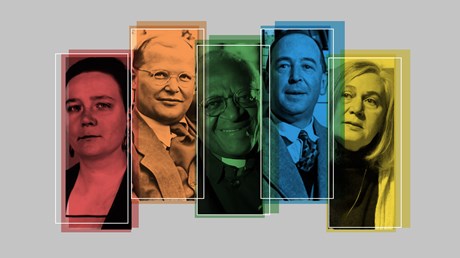If the enemies of truth employ the arts of persuasion, then lovers of truth have no choice but to employ them more effectively.

Speaking the truth in love (Eph. 4:15) may be one of the most misapplied biblical injunctions of our day. We use it to justify blunt commentary and harsh judgment, claiming a motive of love for God or the recipient. Too often, though, we’re just sidestepping kindness or humility. But what if we didn’t have to sacrifice one for the other? In Seasoned Speech: Rhetoric in the Life of the Church, James E. Beitler III shares a recipe for communication that’s persuasive, effective, and transformative. Persuasion podcast co-host Erin Straza spoke with Beitler about the power of rhetoric to bind our worship with our witness in a world that’s desperate for both.
In the book, you identify the key communication skills of five renowned Christian thinkers (C.S. Lewis, Dorothy Sayers, Dietrich Bonhoeffer, Desmond Tutu, and Marilynne Robinson), and you match them with the church’s liturgical calendar. How does the book’s structure help us see connections between the rhetoric of worship and witness?
We are in a moment that’s seeing a renewed interest in liturgy. Thanks in part to the work of James K. A. Smith and others, I began thinking about the ways in which liturgy involves not just spiritual formation and virtue but also our witness. My hope is to prompt readers to think about the ways in which their own worship practices, their own participation in the life of the church, can shape their own forms of witness. How can we present the gospel in ways that are consistent with what we’re doing every Sunday?
In your introduction, you mention that being a master of rhetoric is not at odds to authentic Christian witness. Why is this a common concern?
The word rhetoric is often used pejoratively. ...
from
http://feeds.christianitytoday.com/~r/christianitytoday/ctmag/~3/3lsT8RHciwE/seasoned-speech-james-beitler-rhetoric.html
No comments:
Post a Comment